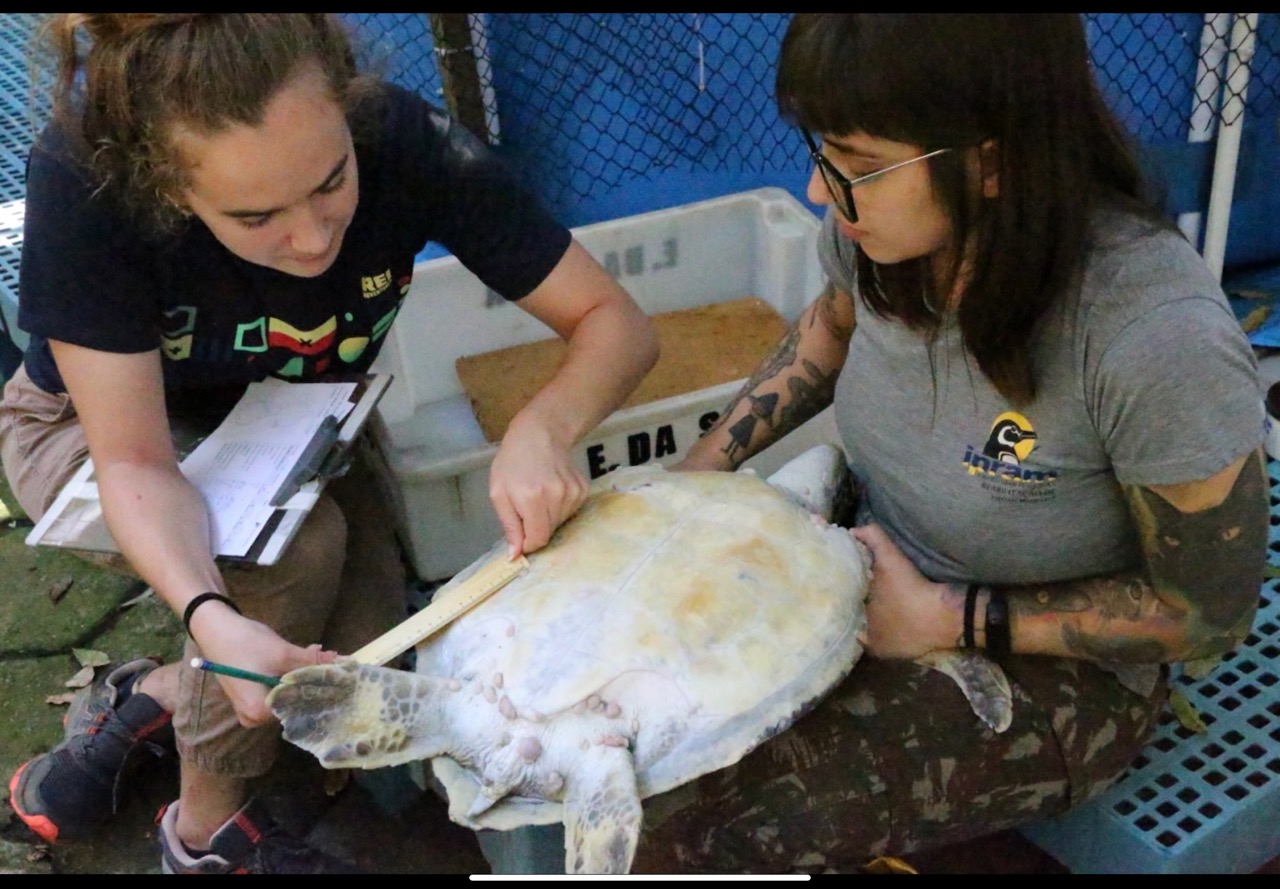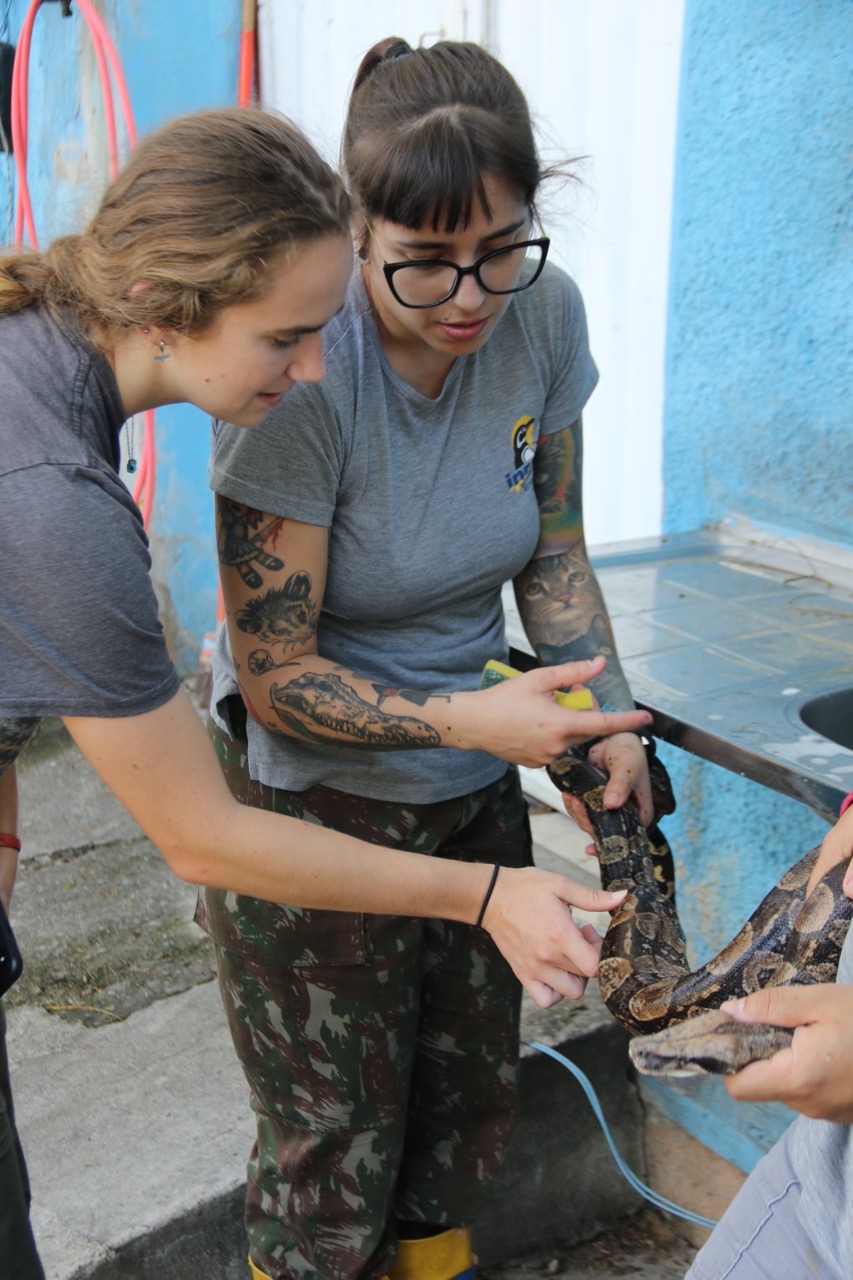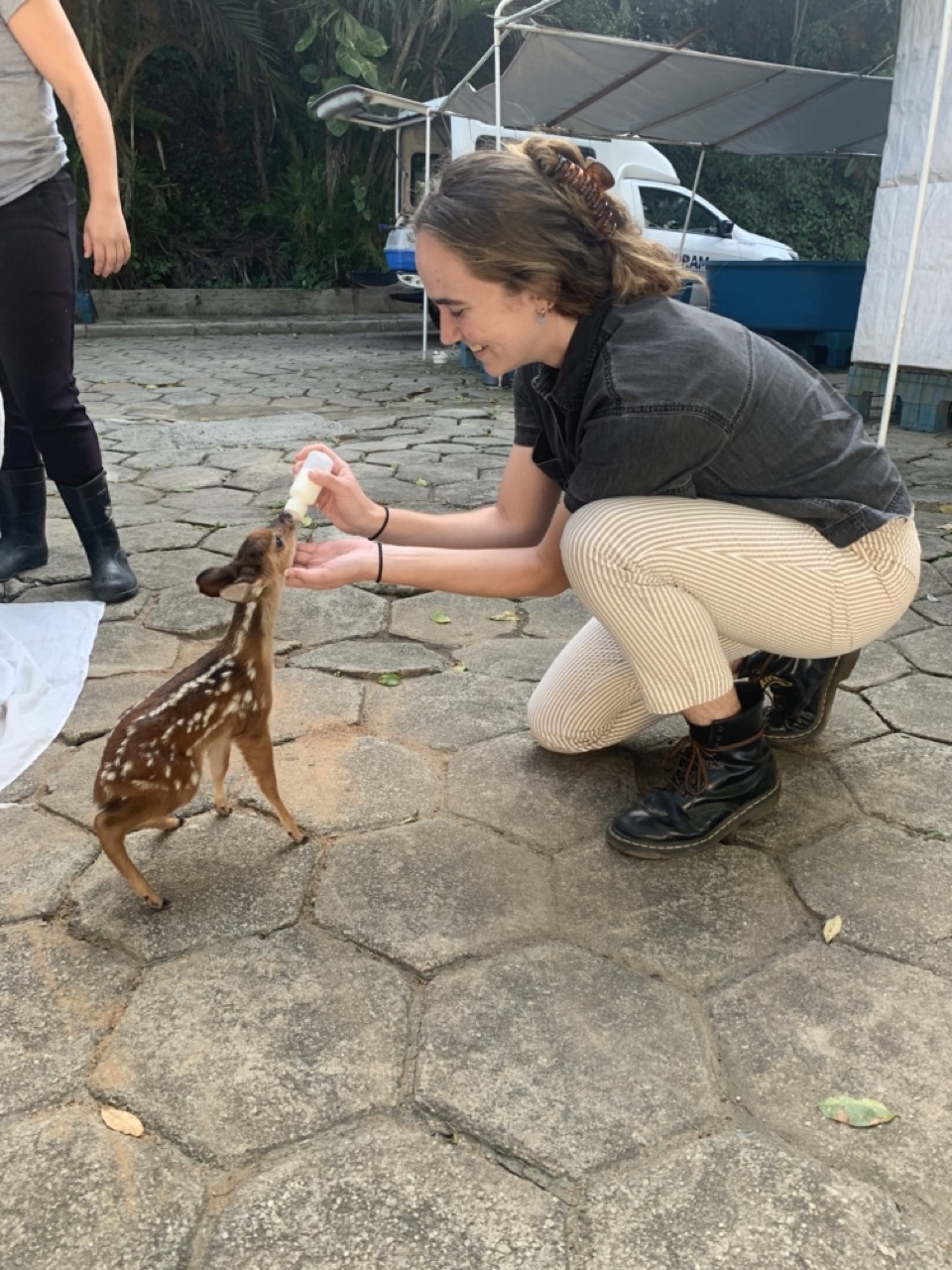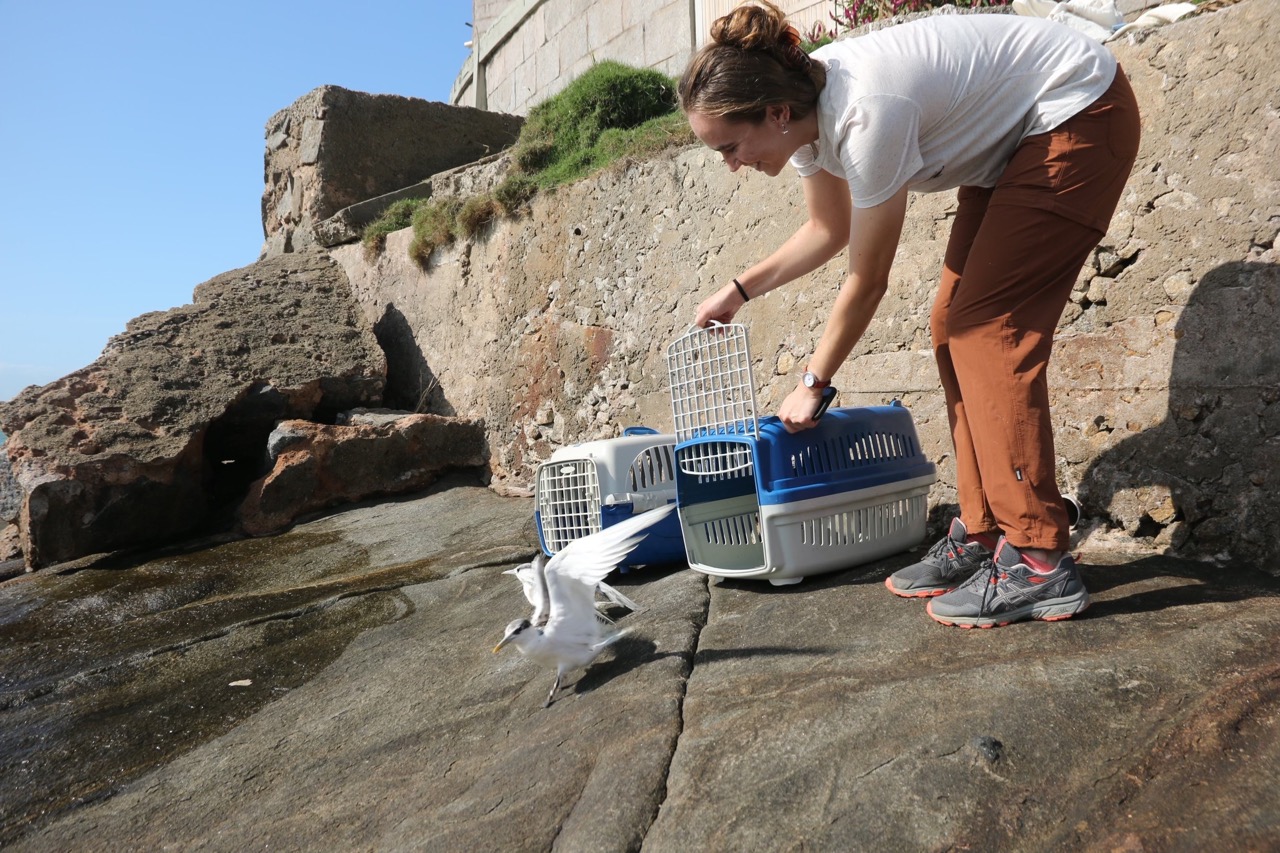Alexis Durant
This summer I had the opportunity to travel to Brazil to conduct research onFibropapillomatosis (FP), a disease-causing tumor development in all species of sea turtles around the globe. FP is caused by a chelonid herpesvirus, but the disease is multifactorial and the virus alone is not sufficient to cause tumor manifestation. While it is unknown what other factors are required for tumor development, it has been found to be associated with certain environmental variables by prior studies. FP has been less studied in Brazil as compared to other countries which are why we were interested in conducting the research there. It is also typically studied in a binary way, but during our work, we utilized a disease-scoring index that allowed for studying the variety of different FP presentations. I am so thankful for my project mentors, Dr.Marcela Uhart and Dr. Ralph Vanstreels, for allowing me to collaborate on this project with them.
While in Brazil, I had the opportunity to spend time at two different wildlife rehabilitation centers. This was both to collect data for the research project and to gain valuable clinical experience with a wide variety of species. The first rehabilitation center I visited was solely for sea turtles, called Projeto TAMAR, in Ubatuba. I was able to assist in the treatments of the patients there as well as learn about husbandry and feeding for the resident turtles in their care. Next, I visited IPRAM, a rehabilitation center in Espírito Santo, that cared for all wildlife species. I got to witness and assist with treatments of an incredible diversity of species, as well as involved in any necropsies they conducted. At IPRAM, I was also able to collect data for the project by counting and measuring all tumors on any sea turtles affected by FP. I am incredibly grateful to have had the chance to gain both research and clinical experience at both of these facilities, and to have had the opportunity to learn from all of their knowledgeable veterinary staff. While in Brazil, I was also able to experience many beautiful sites on my days off, including amazing beaches and hikes.
Throughout my time in Brazil and after returning to Davis, I had many meetings with my project mentors where I learned more about the necessary steps to analyze the data we had compiled. We found that for our study population, there are three different types of FP tumor presentation, varying by tumor location and severity. We also found that this pattern has significant associations with some of the environmental variables we tested. This is important information for the future of FP research, as the disease has not been studied in this way before, and it is possible that it is of clinical and conservation significance.
I am so immensely grateful to have had this opportunity this past summer. I learned so much about species I haven’t had much exposure to thus far in school, as well as learning more about my own future career goals. The whole experience has made me even more excited about pursuing a career in wildlife medicine and research. I would like to thank again my project mentors as well as Projeto TAMAR and IPRAM; additionally, I would like to thank GlobalPrograms and STAR for providing me with the funding that was necessary to have these experiences.




